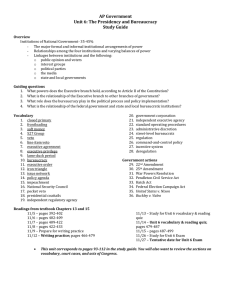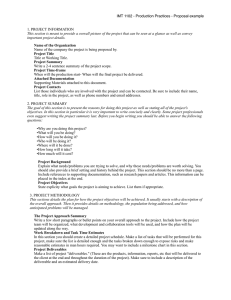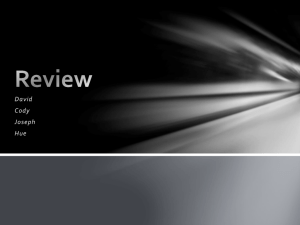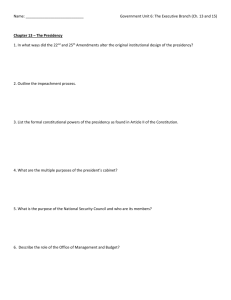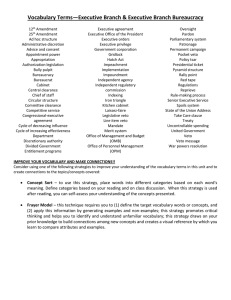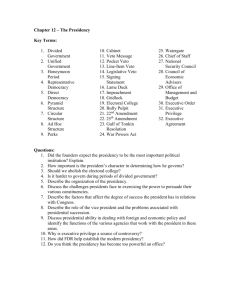“John Marshall has his him it!”
advertisement
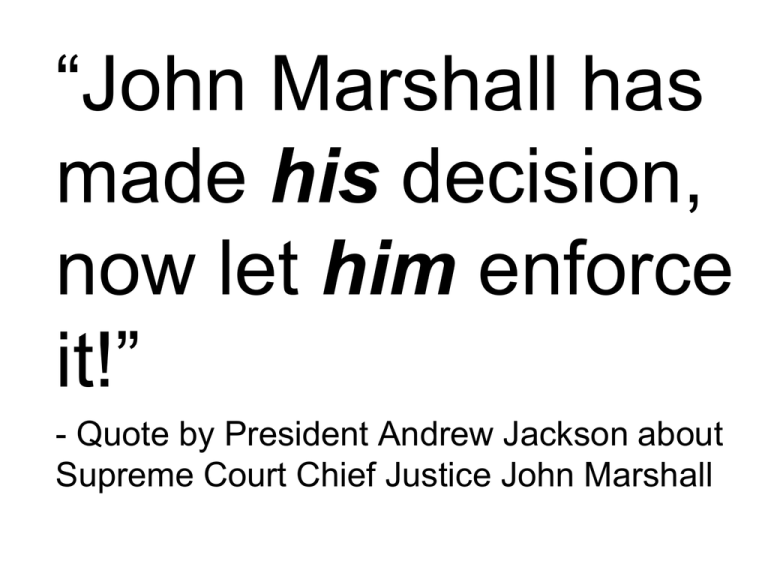
“John Marshall has made his decision, now let him enforce it!” - Quote by President Andrew Jackson about Supreme Court Chief Justice John Marshall Line-Item Veto • A method of vetoing just PART of a bill and allowing the rest of it to pass into law • Only applies to SOME STATES (not Pennsylvania and not the United States Government) • The line-item veto has been created to allow governors to eliminate wasteful spending that makes its way into bills • Often, to get a bill passed, extra spending (sometimes on unrelated issues) is added to win votes of undecided lawmakers. How a Line-Item Veto Works Works just like a regular veto 1. Bill goes through the lawmaking process 2. Once it arrives at the Governor’s desk, instead of vetoing the whole bill, he/she selects just the lines or sections of text he/she thinks are bad and simply vetoes them. 3. It then goes back to the House and Senate, where they can override the line-item vetoed sections by a 2/3 vote in each chamber Line-Item Veto Practice • Instead of using a bill, we will use an Amendment from the U.S. Constitution (Governors cannot line-item veto their state’s Constitution nor can Presidents or Governors actually line-item veto the U.S. Constitution) • Use Wisconsin rules: DELETE ONLY any words, letters, spaces or punctuation marks. • What is left will compress together to form new words with new meaning • Be silly or serious, but keep it OK for school!! If progress is movement toward making things better, then what’s Congress? Question: Why was the line-item veto created? Answer: To increase the power of the Governor to eliminate wasteful spending. Question: What is one way in which is our practice exercise is similar to the actual line-item veto power? Answer: • Allows unwanted text to be deleted • Did not allow for text to be moved around Question: What are two ways in which our practice exercise is different from the actual line-item veto power? Answer: • Cannot line-item veto constitutions • No line-item veto for federal power • MOST line-item vetoes do not allow for Wisconsin rules: deleting words, letters, spaces, punctuation marks alone. • Wasn’t limited to wasteful spending
